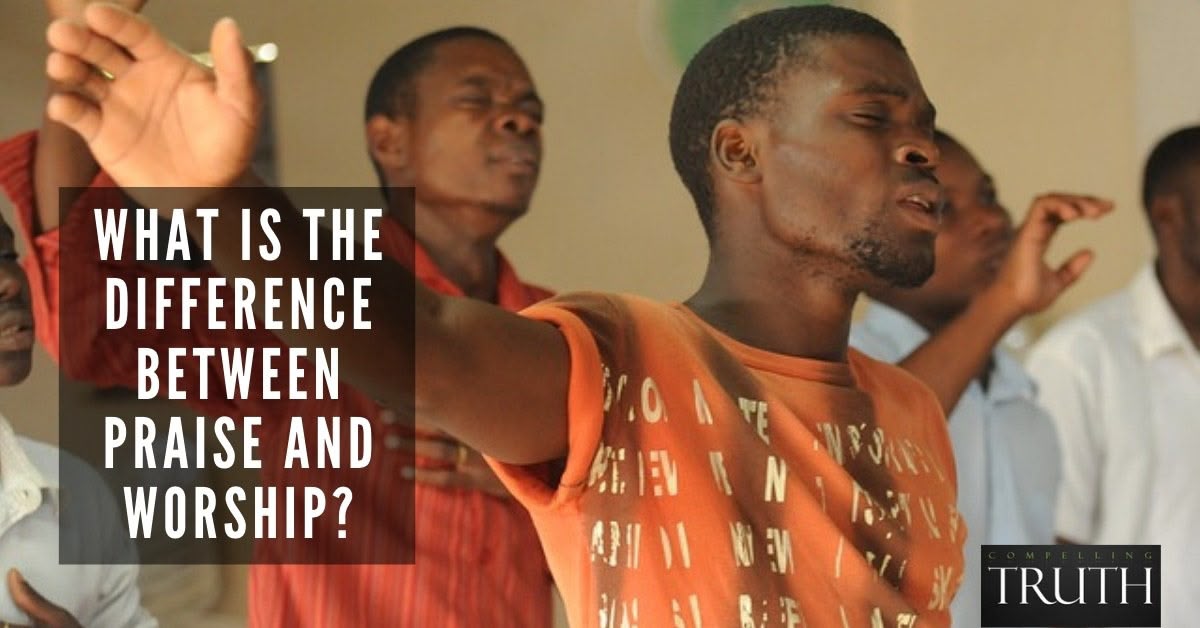Praising the Lord means we do our best to give Him all the adoration and approval He deserves. Every living being has the purpose of giving God praise: "Praise him for his mighty deeds; praise him according to his excellent greatness!. . . Let everything that has breath praise the LORD! Praise the LORD!" (Psalm 150:2, 6). So, what does it look like to praise the Lord?
We bring praise to the Lord when we choose to glorify Him, thank Him, adore Him, honor Him, and obey Him, to name a few. Praise is a genuine response to the singular goodness of God. He alone is worthy of all our worship (Psalm 148:13; Luke 4:8). Our actions (Colossians 3:17), our words (Psalm 35:28), and our hearts (Psalm 86:12) should all bring praise to the Lord. When we live righteous lives before God, it brings Him glory and results in praising Him (Philippians 1:9–11). Psalm 119:7 says: "I will praise you with an upright heart, when I learn your righteous rules." Praise is not motivated by a hypocritical desire to look more "spiritual"; instead, true praise is motivated by seeing and experiencing God's goodness to us and others and by learning the ways of the Lord.
Why do we praise God? First of all, He is our Creator. We praise Him for His salvation, provision, protection, love, faithfulness, kindness, and goodness, to name a few. What are some of the ways God has been good to us? The apostle Paul outlines some of them in Ephesians 1:
He has blessed us in Christ with every spiritual blessing (verse 3)
Chose us to be holy and blameless (verse 4),
Adopted us as His own children (verse 5),
Redeemed us with His own blood for the forgiveness of our sins (verse 7),
Made the mystery of His will, His plan of redemption through Christ, known to us (verses 8–10),
Gave us an inheritance (verse 11), and
Sealed us with the Holy Spirit (verse 13).
Paul says this is "so that we who were the first to hope in Christ might be to the praise of his glory" (Ephesians 1:12). Hallelujah to the One who has saved us!
There are so many ways we can praise the Lord. As mentioned above, living in obedience and righteousness brings God praise, but praise is not just about living right. Praise is something we act out in practice. The Psalms are filled with descriptions of how we can praise the Lord. With musical instruments (Psalm 150:3–5), with singing and dancing (Psalm 149:1–4), by raising our hands (Psalm 63:4), by bowing down (Psalm 95:6), and by exalting God communally in the fellowship of other believers (Psalm 34:3).
We are to praise the Lord always: "I will bless the LORD at all times; his praise shall continually be in my mouth" (Psalm 34:1; see also Philippians 4:4). This is much easier said than done sometimes. It is easy to praise God when we are happy and things in our lives are going well. But what about when they're not? The writer of Hebrews reminds us that Jesus suffered greatly for our sake (Hebrews 12:2–3; 13:12; see also Isaiah 53:5; 1 John 2:2). We are instructed to continually offer the sacrifice of praise back to Him (Hebrews 13:15). Praise is a sacrifice, but when we continue praising God in the midst of hardships, He reminds us of His goodness and faithfulness to us in the past.
Psalm 42 shows us the back and forth struggle of the sacrifice of praise. The psalmist is in great agony because of his troubles and sorrows; He feels forsaken by God. Instead of turning away, he chooses to remember God's goodness to Him in the past:
"My tears have been my food
day and night,
while they say to me all the day long,
'Where is your God?'
These things I remember,
as I pour out my soul:
how I would go with the throng
and lead them in procession to the house of God
with glad shouts and songs of praise,
a multitude keeping festival.
Why are you cast down, O my soul,
and why are you in turmoil within me?
Hope in God; for I shall again praise him,
my salvation and my God" (Psalm 42:3–6a).
We have to remind ourselves of the faithfulness of God in the moments when it feels darkest. When we offer the sacrifice of praise to God out of obedience, soon enough, we will start to believe it again as well. We do not deny our pain; rather, by praising the Lord, we are choosing to remember that He is there with us in the midst of it. Hoping in God and praising God go together: "But I will hope continually and will praise you yet more and more" (Psalm 71:14). We have the assurance of God's faithfulness. What God has done before He can do again. "Let us hold fast the confession of our hope without wavering, for he who promised is faithful" (Hebrews 10:23). Our God is always worthy of all praise; praise the Lord!
We bring praise to the Lord when we choose to glorify Him, thank Him, adore Him, honor Him, and obey Him, to name a few. Praise is a genuine response to the singular goodness of God. He alone is worthy of all our worship (Psalm 148:13; Luke 4:8). Our actions (Colossians 3:17), our words (Psalm 35:28), and our hearts (Psalm 86:12) should all bring praise to the Lord. When we live righteous lives before God, it brings Him glory and results in praising Him (Philippians 1:9–11). Psalm 119:7 says: "I will praise you with an upright heart, when I learn your righteous rules." Praise is not motivated by a hypocritical desire to look more "spiritual"; instead, true praise is motivated by seeing and experiencing God's goodness to us and others and by learning the ways of the Lord.
Why do we praise God? First of all, He is our Creator. We praise Him for His salvation, provision, protection, love, faithfulness, kindness, and goodness, to name a few. What are some of the ways God has been good to us? The apostle Paul outlines some of them in Ephesians 1:
Paul says this is "so that we who were the first to hope in Christ might be to the praise of his glory" (Ephesians 1:12). Hallelujah to the One who has saved us!
There are so many ways we can praise the Lord. As mentioned above, living in obedience and righteousness brings God praise, but praise is not just about living right. Praise is something we act out in practice. The Psalms are filled with descriptions of how we can praise the Lord. With musical instruments (Psalm 150:3–5), with singing and dancing (Psalm 149:1–4), by raising our hands (Psalm 63:4), by bowing down (Psalm 95:6), and by exalting God communally in the fellowship of other believers (Psalm 34:3).
We are to praise the Lord always: "I will bless the LORD at all times; his praise shall continually be in my mouth" (Psalm 34:1; see also Philippians 4:4). This is much easier said than done sometimes. It is easy to praise God when we are happy and things in our lives are going well. But what about when they're not? The writer of Hebrews reminds us that Jesus suffered greatly for our sake (Hebrews 12:2–3; 13:12; see also Isaiah 53:5; 1 John 2:2). We are instructed to continually offer the sacrifice of praise back to Him (Hebrews 13:15). Praise is a sacrifice, but when we continue praising God in the midst of hardships, He reminds us of His goodness and faithfulness to us in the past.
Psalm 42 shows us the back and forth struggle of the sacrifice of praise. The psalmist is in great agony because of his troubles and sorrows; He feels forsaken by God. Instead of turning away, he chooses to remember God's goodness to Him in the past:
"My tears have been my food
day and night,
while they say to me all the day long,
'Where is your God?'
These things I remember,
as I pour out my soul:
how I would go with the throng
and lead them in procession to the house of God
with glad shouts and songs of praise,
a multitude keeping festival.
Why are you cast down, O my soul,
and why are you in turmoil within me?
Hope in God; for I shall again praise him,
my salvation and my God" (Psalm 42:3–6a).
We have to remind ourselves of the faithfulness of God in the moments when it feels darkest. When we offer the sacrifice of praise to God out of obedience, soon enough, we will start to believe it again as well. We do not deny our pain; rather, by praising the Lord, we are choosing to remember that He is there with us in the midst of it. Hoping in God and praising God go together: "But I will hope continually and will praise you yet more and more" (Psalm 71:14). We have the assurance of God's faithfulness. What God has done before He can do again. "Let us hold fast the confession of our hope without wavering, for he who promised is faithful" (Hebrews 10:23). Our God is always worthy of all praise; praise the Lord!



